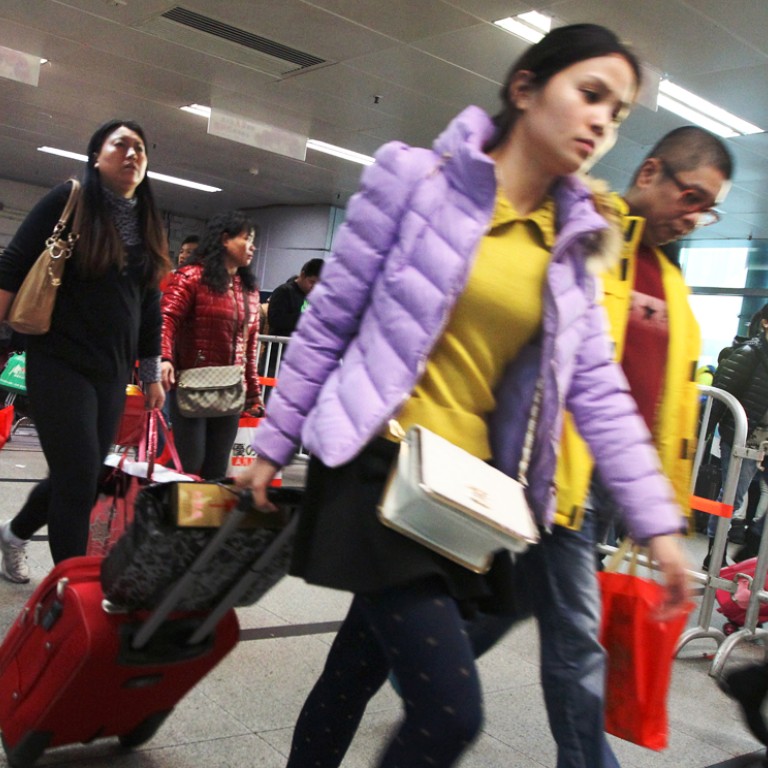
Change in travel rule for Shenzhen residents could hurt Hong Kong in the long term
Hong Kong prides itself on being a tourist-friendly city. From day-trippers from across the border to travellers from further afield, our doors are always open.
Hong Kong prides itself on being a tourist-friendly city. From day-trippers from across the border to travellers from further afield, our doors are always open. But the travel convenience extended to some neighbouring cities on the mainland over the past years has also been abused by traders, who resell goods bought here at a profit across the border. The negative social sentiment fuelled by parallel trading has become so strong that authorities on both sides of the border have had to take action.
In response to our government's request, the mainland authorities yesterday formally replaced the multiple-entry document for permanent Shenzhen residents with a new one-visit-per-week permit. It is estimated that this may effectively slash the number of visits by 30 per cent. But as the arrangement only applies to newly issued permits, the full impact may not be felt until old permits expire.
Ideally, the flow of people, goods and services should be determined by the free market. But in our case, it has been distorted by consumers' lack of confidence in products sold on the mainland. Policy adjustment is therefore warranted.
The new travel restriction is understandable in light of growing public grievances on this side of the border. But whether parallel trading can be curbed remains to be seen. It is known that the activity, banned on the mainland but lawful in Hong Kong, is not confined to mainland visitors. Some locals have long taken advantage of their freedom to travel to deliver goods across the border. The rule change is already said to have prompted traders to recruit more Hongkongers to do the job. Some critics even warned that unless Hongkongers faced similar travel restrictions, parallel trading would remain rampant. Chief Executive Leung Chun-ying yesterday rightly warned locals not to engage in such activity and vowed to step up enforcement if any laws are breached.
In the short run, yesterday's announcement may ease anti-mainland sentiment among some locals. But the central government has effectively been asked to make a U-turn on a policy that the Hong Kong authorities once lobbied hard for. The new rule may hurt the feelings of those affected on the mainland. It also casts a shadow over our relationship with the mainland in the longer term. Concerns are growing that Beijing may be less forthcoming when Hong Kong seeks help again in future.

